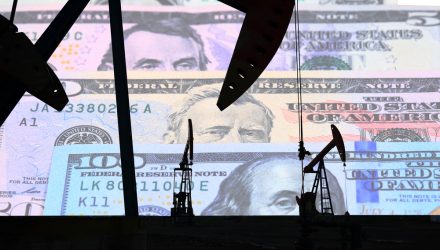Oil and energy sector-related exchange traded funds stood out on Wednesday after the International Energy Agency (IEA) said demand could continue to outpace supply as vaccinations against Covid-19 will support the global economic outlook.
On Wednesday, the iShares U.S. Oil Equipment & Services ETF (NYSEArca: IEZ) increased 0.6% while the broader Energy Select Sector SPDR (NYSEArca: XLE), the largest equity-based energy exchange traded fund, was up 0.5%.
Meanwhile, the United States Oil Fund (NYSEArca: USO), which tracks West Texas Intermediate crude oil futures, and the United States Brent Oil Fund (NYSEArca: BNO), which tracks Brent crude oil futures, were up 0.8% and 0.7%, respectively. WTI crude oil futures were up 0.8% to $65.8 per barrel, and Brent crude gained 0.8% to $69.1 per barrel.
“The anticipated supply growth through the rest of this year comes nowhere close to matching our forecast for significantly stronger demand beyond the second quarter,” the IEA said in its monthly report, citing increased pumping from OPEC+ countries, Bloomberg reports.
Output from the Organization of the Petroleum Exporting Countries and its allies including Russia, or so-called OPEC+ group of producers, fell behind crude oil demand by about 150,000 barrels per day over the second quarter, according to the IEA. Looking ahead, the disparity is projected to widen to 2.5 million bpd by the end of the year.
“The widening supply and demand gap paves the way for a further easing of OPEC+ supply cuts or even sharper stock draws,” the IEA said, noting that storage of crude had reduced to nearly the five-year-average after surging amid the coronavirus pandemic.
OPEC+ cuts have helped contributed to storage capacity returning to the five-year average, which was one of the main goals of the cartel and its allies.
Meanwhile, supply recovery was slightly slower than what the IEA expected due to ongoing delays in Brazil and the Gulf of Mexico, along with maintenance problems in Canada. Additionally, the IEG argued that new infections in Brazil, Thailand, and India would not be enough to derail the trend but could continue to affect the market.
“India’s COVID crisis is a reminder that the outlook for oil demand is mired in uncertainty. Until the pandemic is brought under control, market volatility is likely to persist,” added the IEA.
For more news, information, and strategy, visit the ETF Trends.
